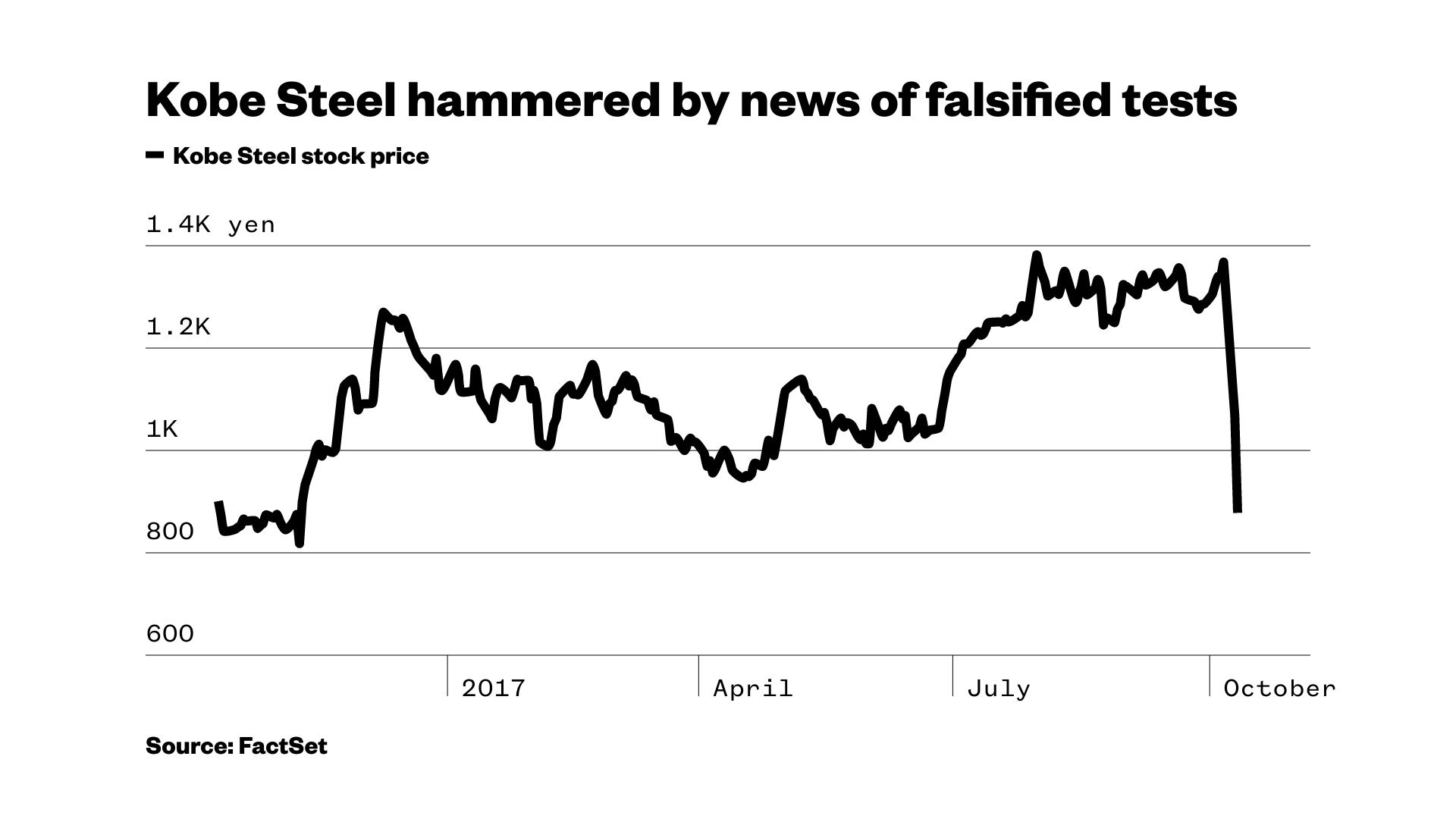A scandal over falsified test data has enveloped Kobe Steel and cast a pall over manufacturers around the world who use the Japanese supplier’s materials, which can be found in everything from cars to water bottles.The company announced Sunday that it had discovered “improper conduct” in which in-house test data on more than 20,000 tons of aluminum and copper shipped between September 2016 and August 2017 had been rewritten to show the metal meeting customer specifications when it in fact didn’t.Following a holiday for Japan’s stock market on Monday, the news has set off a sharp drop in Kobe shares that has only accelerated throughout the week as new information about the company’s testing has surfaced. But certain crucial details remain unknown.On Wednesday, Kobe said it is internally investigating tests going back as far as 10 years, and it confirmed it has found one case of falsified data regarding iron powder shipped to a customer. The news sent Kobe shares down 18 percent on the day.So far this week, the company’s total market value has fallen by more than a third, or more than $1.6 billion. No one has confirmed a specific safety issue for consumers yet related to Kobe’s falsifications. But makers of finished consumer goods around the world are now scrambling to figure out if they’ve inadvertently shipped defective items using the company’s materials.A few things we know so far from the company’s customers:
No one has confirmed a specific safety issue for consumers yet related to Kobe’s falsifications. But makers of finished consumer goods around the world are now scrambling to figure out if they’ve inadvertently shipped defective items using the company’s materials.A few things we know so far from the company’s customers:
Advertisement

- A Boeing spokesman told CNN that company is inspecting its supply chain for any impacted components, although it hasn’t found any safety issues to date.
- Nissan said in an emailed statement to the Washington Post: “We have confirmed that aluminum from Kobe Steel is used in the hoods and doors of some of our vehicles. As hoods are related to pedestrian safety, we are working to quickly assess any potential impact on vehicle functionality.”
- Toyota, Honda, and Mitsubishi are also all looking into their use of auto parts made from Kobe Steel materials.